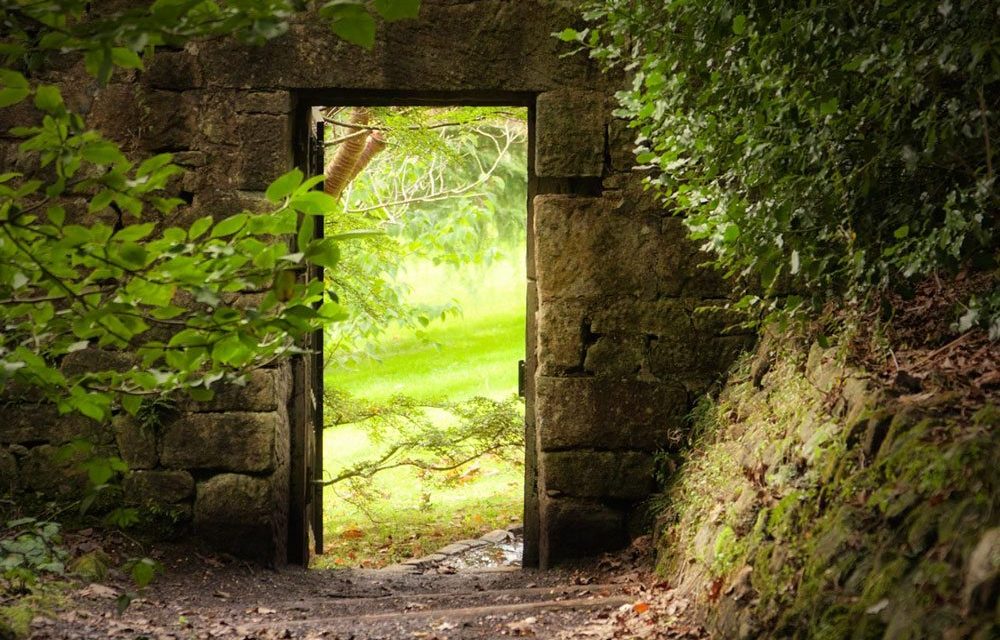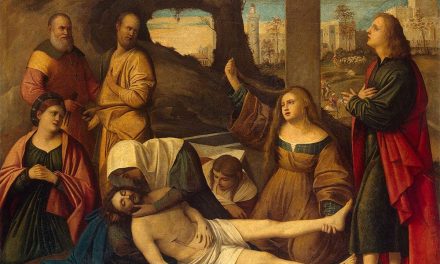by Dermot Cottuli
At the start of the New Year I want to touch on something that causes all sorts of issues for way too many people. In fact it’s the number one cause of arguments and relational discord and a major source of depression and deep dissatisfaction in the lives of countless people around you – maybe even you. It’s also the only reason anything ever gets done and it’s a major driving force behind just about every fulfilled goal, dream, great achievement and new discovery. I’m talking this morning about expectations. As we look toward a brand new year and all that it holds it’s a given that many people here will have already started to think about some of the things they’re expecting will happen as the year unfolds. For some it will be new relationships or relational milestones. For others it will be a new year at school and all the challenges that brings. For still others it will be a transitional year where they start something brand new.
None of us start a year hoping that everything will fall apart and that pain and misery will walk alongside us. However if you’ve been around a while you know that sometimes pain and misery find us and our world falls apart without any help or prompting from us whatsoever. When that happens we can find ourselves wishing we hadn’t been so hopeful and set such high expectations.
Expectation is defined as believing that something is going to happen or believing that something should be a certain way.
Expectations in and of themselves aren’t good or bad – they’re just a part of life and for a lot of the time we don’t consciously know we have them. It’s not until we find ourselves in a situation where we’re not getting what we want that they can have a detrimental effect on our emotions, our lives and our relationships.
Expectations form the basis for the labels we give people when we call one person an optimist and another a pessimist. Winston Churchill when asked why he was such an optimist simply replied that he couldn’t see any benefit in the alternative. Pessimists are often defined as people who burn their bridges before they even get there.
William Shakespeare wrote,
“Expectations are the root of all heartache.”
Barry Schwartz said that
“The secret of happiness was to have low expectations.”
Flannery O’Connor is attributed with the quote
“To expect too much is to have a sentimental view of life and this is a softness that ends in bitterness.”
On the flip side it’s been said that high achievement only occurs in the environment of high expectations. You’ve probably heard the saying, “You get what you expect!”
Ralph Charell said that
“Nobody succeeds beyond his or her wildest expectations unless he or she begins with some wild expectations.”
When preparing this message I found there was far more written about having low expectations rather than high expectations and the primary driver behind most of what I read was fear and cynicism. Fear of pain, disappointment, failure and heart ache and the discouragement that it brings with it. Cynicism, because they’d once been idealistic and life had driven a semi trailer over their dreams.
It’s understandable why some people retreat from relationships, no longer try to learn new skills, stop volunteering and set very low goals or none at all given the experiences that many have encountered in their lives but is it really the best response to an uncertain future? How can we manage the need to have positive expectations and the reality of the hard times that we all experience?
Jesus weighed in on the topic of expectations shortly before his crucifixion with an important insight that we’d do well to remember.
John 16:33
I have told you all this so that you may have peace in me. Here on earth you will have many trials and sorrows. But take heart, because I have overcome the world.”
Jesus here is saying that we can have peace in Him as we experience trials and sorrow in life and if we don’t give up we’ll eventually win through in eternity. How many times do our expectations require that we pay a price before we see them come to pass? At the start of the year instead of setting goals maybe we should be asking ourselves this question, “How much pain am I willing to put up with?” or “What am I willing to struggle for?”
Just wanting something isn’t enough – you have to be willing to pay the price, and there’s always a price. Our goals point to the end game but we too often get sidetracked by the cost along the way.
The Apostle Paul has this to say about expectation, suffering and future rewards.
Philippians 3
Whatever happens, my dear brothers and sisters, rejoice in the Lord. I never get tired of telling you these things, and I do it to safeguard your faith.
Watch out for those dogs, those people who do evil, those mutilators who say you must be circumcised to be saved. For we who worship by the Spirit of God are the ones who are truly circumcised. We rely on what Christ Jesus has done for us. We put no confidence in human effort, though I could have confidence in my own effort if anyone could. Indeed, if others have reason for confidence in their own efforts, I have even more!I was circumcised when I was eight days old. I am a pure-blooded citizen of Israel and a member of the tribe of Benjamin—a real Hebrew if there ever was one! I was a member of the Pharisees, who demand the strictest obedience to the Jewish law. I was so zealous that I harshly persecuted the church. And as for righteousness, I obeyed the law without fault.
I once thought these things were valuable, but now I consider them worthless because of what Christ has done. Yes, everything else is worthless when compared with the infinite value of knowing Christ Jesus my Lord. For his sake I have discarded everything else, counting it all as garbage, so that I could gain Christ and become one with him. I no longer count on my own righteousness through obeying the law; rather, I become righteous through faith in Christ. For God’s way of making us right with himself depends on faith. I want to know Christ and experience the mighty power that raised him from the dead. I want to suffer with him, sharing in his death, so that one way or another I will experience the resurrection from the dead!
I don’t mean to say that I have already achieved these things or that I have already reached perfection. But I press on to possess that perfection for which Christ Jesus first possessed me. No, dear brothers and sisters, I have not achieved it, but I focus on this one thing: Forgetting the past and looking forward to what lies ahead, I press on to reach the end of the race and receive the heavenly prize for which God, through Christ Jesus, is calling us.
Paul here is telling us that he’s quite happy to endure suffering and loss whilst here on earth because he is fully expecting to finally enjoy a future, free of suffering and loss, full of life, love, joy and peace in the manifest presence of God, once he dies and moves on.
So we have a hope for the next life but where does that leave us in this one? Is there a way to find peace and joy in this life regardless of what we’re going through externally and internally?
Paul gives us a clue in the next chapter of Philippians
Philippians 4:10-13
How I praise the Lord that you are concerned about me again. I know you have always been concerned for me, but you didn’t have the chance to help me. Not that I was ever in need, for I have learned how to be content with whatever I have. I know how to live on almost nothing or with everything. I have learned the secret of living in every situation, whether it is with a full stomach or empty, with plenty or little. For I can do everything through Christ, who gives me strength.
What does it mean to be content?
CONTENT: a state of peaceful happiness, a state of satisfaction.
Out of which then flows quite naturally an attitude of gratitude which then strengthens your sense of peaceful happiness and satisfaction.
Now you’re probably thinking that if you were in a state of peaceful happiness and satisfaction you’d be thankful too but you’re not and no matter how hard you try you just can’t get there. Well hang on, I’m going to show you something that actually works and will help you get to that place in your life. It’s written about in the Bible but most of us skim past it too quickly to realise we’re missing a key component of the Christian life.
Paul discovered something that everyone who’s followed Jesus down through the centuries eventually realises. Whilst life is a journey to our final home with Jesus it’s also to be lived, experienced and fully embraced in the moment because it’s in the now that we find the strength of Jesus to help us.
Jesus can’t help you tomorrow because you’re not there yet. He can’t help you yesterday because it’s already passed. But you can know His presence right now. This moment is all you have and all you’ll ever have. Jesus has dealt with your past through his forgiveness and he’s promised to be with you when you arrive in your future so that’s taken care of as well – all that’s left is right now. This moment that we’re currently sharing together here.
When Jesus told his disciples not to worry about tomorrow he was giving them a key as to how they should live their lives.
In Matthew 6:34 He told us not to borrow trouble from tomorrow because today has enough of its own.
Here’s the thing. Your life today will be exponentially harder than it should be if you live weighed down by regret (things that happened in your past) or stressed out by worry (things that have yet to happen in the possible future).
Now this is really important for you to grasp a hold of.
Remember, when Paul said he had learned to be content in whatever situation he found himself in he was describing a state of peaceful happiness, a state of satisfaction.
Now here’s the good news….
It’s actually quite easy to experience it if you learn to live in the moment and stop borrowing trouble from your past and/or your future. You see most of us stack things up in our lives. We add trouble on top of trouble. We accumulate stuff from our past and add it to stuff we’re worried about in our future and then try to carry all of it today and we weren’t meant to. If we could learn to live in the now with Jesus we would find everything we face in life so much easier.
It’s a lesson that I’ve learned at various times during my life but then promptly forgotten as I’ve allowed regret, disappointment and worry to rob me of my peace and happiness in Jesus. I remember when I was youth pastor and had to speak to our young people about the power of God and I was getting really stressed about it and was praying to God for his anointing so that I could do a good job and I felt absolutely nothing. I must have prayed for a good half hour before the meeting and nothing happened. I didn’t feel any better. That is until I stepped up to speak and then I felt the presence of the Holy Spirit and was able to do all that I had hoped for and more. God taught me two lessons that night. Lesson 1, I could always trust him to be with me in the moment and lesson 2 I didn’t need his help until I needed it.
Alan Watts (1915-1973) who held both a master’s degree in theology and a doctorate of divinity, is best known as an interpreter of Zen Buddhism in particular, and Indian and Chinese philosophy in general. He authored more than 20 excellent books on the philosophy and psychology of religion and one of his audio files, captures I believe, the essence of what it means to live in the moment.
Audio Excerpt
The existence of the physical universe is basically playful. There is no necessity for it whatsoever. It isn’t going anywhere. That is to say, it doesn’t have some destination that it ought to arrive at.
But it’s best understood by the analogy of music. Because music, as an art form is essentially playful. We say, “You play the piano” You don’t work the piano.
Why?Music differs from say, travel. When you travel you are trying to get somewhere. In music, though, one doesn’t make the end of the composition the point of the composition. If that were so, the best conductors would be those who played fastest. And there would be composers who only wrote finales. People would go to a concert just to hear one crackling chord… Because that’s the end!
Same way with dancing. You don’t aim at a particular spot in the room because that’s where you will arrive. The whole point of the dancing is the dance.
But we don’t see that as something brought by our education into our conduct. We have a system of schooling which gives a completely different impression. It’s all graded and what we do is put the child into the corridor of this grade system with a kind of, “Come on you can do it.” And you go onto kindergarten and that’s a great thing because when you finish that you get to move up to first grade. Then, “Come on” first grade leads to second grade and so on. And then you get out of grade school and you go to high school. It’s revving up, the thing is coming, then you’re going to go to college… Then you’ve got university, and when you’re through with university you go out to join the world.
Then you get into some racket where you’re selling insurance. And they’ve got that quota to make, and you’re gonna make that. And all the time that thing is coming – It’s coming, it’s coming, that great thing. The success you’re working for.
Then you wake up one day about 40 years old and you say, “My God, I’ve arrived. I’m there.” And you don’t feel very different from what you’ve always felt.
Look at the people who live to retire; to put those savings away. And then when they’re 65 they don’t have any energy left. They’re more or less impotent. And they go and rot in some, old peoples home. Because we simply cheated ourselves the whole way down the line.
If we thought of life by analogy as a journey, as a pilgrimage, which had a serious purpose at that end, and the thing was to get to that thing at that end. Success, or whatever it is, or maybe heaven after you’re dead.
We would have missed the point the whole way along.
It was a musical thing, and you were supposed to sing or to dance while the music was being played.
I’ve found the analogy of a dance has been extremely helpful in framing up my thinking about life and how it should be approached and in doing so I’m starting to understand at a practical level, Jesus’ and Paul’s teaching about life and how to find peace and contentment in every situation. When you stop thinking that one day you’ll arrive and realise instead that life is to be lived and enjoyed right now you’ll stop missing out on the life you’re meant to live.
I’ve found that living in the moment makes it easy to be grateful – it’s so much easier to be thankful and accepting when you’re living moment by moment because that’s where the presence of Jesus is. When you’re weighed down by regret or fear, it’s hard to see the good that’s all around you. It’s hard to appreciate the wonderful mercy of Jesus who has set us free from our sin and ensured us a wonderful future and inheritance with Him.
Yes we’re on a journey – we’re heading toward our eternal home but whilst we’re here on earth let’s learn to live life today. Let’s sing and dance whilst the music’s being played. Let’s learn and put into practice what Paul learnt and Jesus taught us, to be content and live in a state of peaceful happiness. Let’s make 2017 the year that we realise that we’ve already been given a free entry into life and now it’s up to us to learn the best way to live it day by day.
In closing I’ll give you a little pointer, love is always the key.
[powr-hit-counter id=7501ab44_1483264750155]











